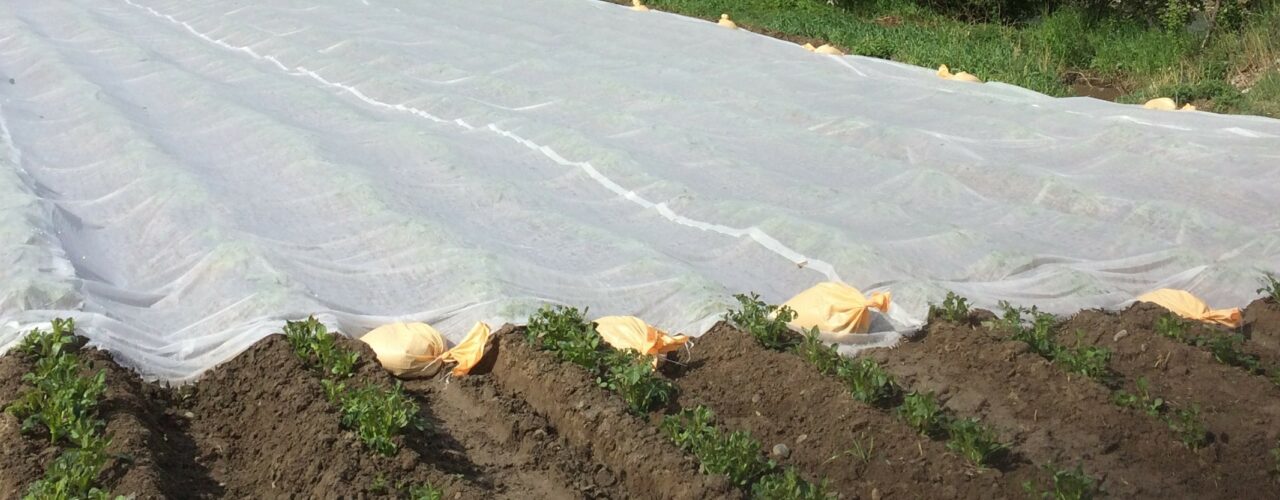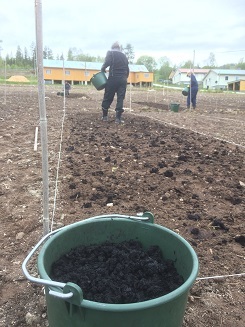
Seaweed fibre for increased soil organic matter
Residual material from brown seaweeds may promote the soil structure and increase the soils’ content of organic matter, and ability to store water. These and other effects of algae fibre will be studied in potato production.

The project «Seaweed fibre for increased soil organic matter” (FIMO) will study how residues of brown algae (seaweeds) affect soil, nutrient contentn plants, potato diseases and soil life, when applied as fertiliser and soil amendment. Residues of Norwegian kelp (Ascophyllum nodosum L.), which is conducted at Algea AS in Kristiansund to produce extracts promoting plant growth, are called algae fibre. Algae fibre contains both beneficial minerals for crop plants such as potassium (K) and sulphur (S), and less beneficial minerals such as sodium (Na), arsenic (As) and cadmium (Cd). In the project, we will study the concentrations of these minerals in potatoes and ryegrass which are grown in soil where algae fibre was applied in 2020. Will the concentrations of non-beneficial minerals be higher in plants grown on plots amended with algae fibre, as compared with plots amended with other fertilisers? Further, we will study whether application of algae fibre to soil may reduce the incidence of the fungal disease black scurf (Rhizoctonia solani) in potatoes. We will also study effects of application of alga fibre on the soil’s content and quality of organic matter, the soil’s ability to store water, and on soil biology characteristics (respiration, springtails, degradation of organic matter). Field experiments established at Tingvoll farm in 2019 and 2020 will be used. The results will be useful to assess if algae fibre may be recommended to increase the content of organic matter in agricultural soil. This can be very relevant e.g. by long-term production of row crops like potatoes, where intensive soil tillage decreases the soil’s content of organic matter. Near Tingvoll, in Sunndal, there is significant potato production and the soils are often in need of more organic matter. The FIMO project may contribute to find a better way, near the point of origin, to dispose a material which is currently poorly utilised and often incinerated.

